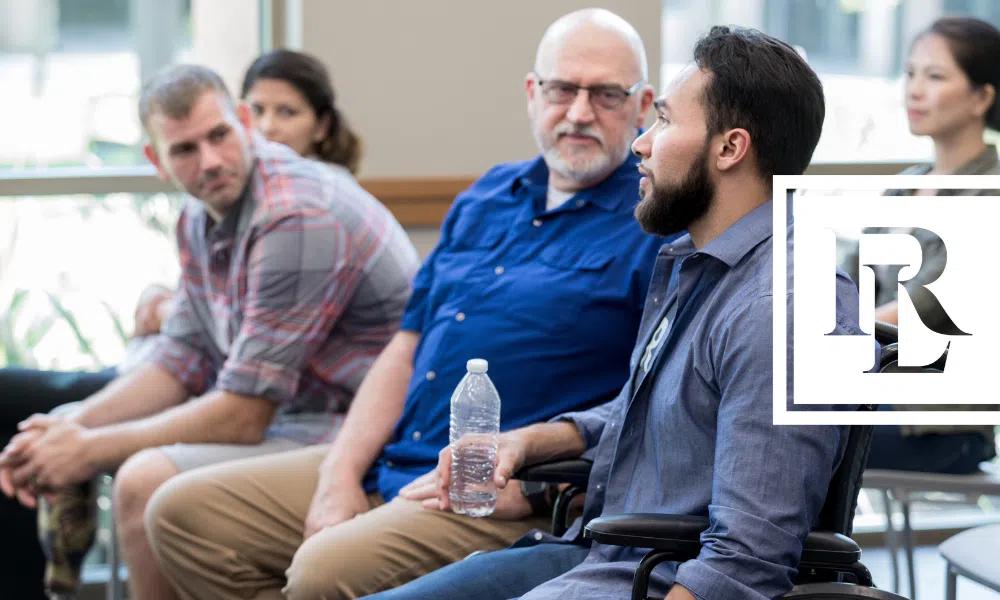Pursuing a VA claim can go one of two ways. Contact our office today to get Rob Levine Law on your side! The experienced attorneys on our team will utilize the 5 secrets to winning your VA claim to make sure that you receive your benefits. Our consultations are free, and we don’t get paid until you win!
Our 5 Secrets to Winning Your VA Claim
Applying for VA disability benefits can involve a mountain of paperwork, complex appeal deadlines, and time-consuming medical examinations. Here are a few tips on navigating the VA’s system and winning the benefits you deserve:
- Not ready to file a claim yet? Preserve your effective date by submitting an Intent to File a Claim for Compensation. If you file a claim within one year of the Intent to File (ITF), your effective date will generally be the date you submitted the ITF.
- Treat, treat, treat! Having updated treatment records is crucial to any VA disability case. The VA will not only review your medical records to determine the cause of your medical conditions, but the VA will review your medical records to determine which ratings should be assigned if service connection is granted.
- Get a statement from your treatment provider. A well-written statement from your treatment provider can help satisfy the positive nexus requirement to establish service connection for a claim.
- Get a statement from a “buddy.” A well-written statement from a third party who is familiar with your conditions or medical history can add another layer of credibility to your case. For instance, veterans with PTSD may want to consider asking a childhood friend to write a statement about their pre-service mental health and the social and behavioral changes that the friend observed after a return from service.
- Specifically ask the VA for a Comp & Pen exam. When there is evidence of a current disability, an in-service event/injury/disease/stressor, and a suggestion that the first two are related, the VA is obligated by law to provide you with a Comp & Pen exam. A positive nexus from a Comp & Pen exam is usually necessary to establish service connection for most claims. The VA often fails to provide veterans with these exams, so be sure to ask!
Once you’ve established service connection, your disability rating will determine your monthly compensation. Use our VA Ratings Calculator to estimate your combined rating and better understand what you may be entitled to.
FAQs About Your VA Disability Claim
Can I receive VA disability compensation and continue to work?
In the Social Security disability system, in order to receive benefits, the standard is, “you are not capable of any form of gainful employment.” Unlike Social Security Disability, you can work while receiving VA disability compensation. Your VA disability benefits is based on how your service-connected disabilities impact your ability to work.
Can I receive VA disability compensation and Social Security Disability benefits at the same time?
Social Security Disability Income (SSDI) does not have a barrier to net worth or income provisions. Regardless of the home, the vehicle you own, or investments you’ve made – or alimony or pension from previous employment, this would not prohibit you from receiving SSDI. Similarly, this would not prohibit you from qualifying and receiving VA disability benefits. Even if you were to qualify for a 100% TDIU rating, you would still qualify for SSDI benefits either under the SSDI guidelines or the VA Disability guidelines.
How long will the VA take to decide my disability case?
The average length of time to adjudicate any claim or appeal depends on many factors, including the type of appeal or claim, the Regional Office, the number of disabilities to decide, any necessary development, and the overall complexity of the case. Cases in the VA’s legacy appeal system can take years. In contrast, the VA has set the following timeliness goal for adjudicating AMA appeals:
- Supplemental Claims: within 125 days
- Higher Level Review: within 125 days
- Board of Veterans’ Appeals – Direct Review Docket: within 365 days
- Board of Veterans’ Appeals – Evidence and Hearing Docket: over 365 days
Do I have to hire a Veterans Disability lawyer?
No, the VA does not require you to hire a lawyer for your appeal. However, remember that the VA also unfairly denied your benefits. Statistics show that veterans with representation receive more benefits, faster. The Veterans Disability attorneys at Rob Levine Law know the law as well as the ins and outs of the VA system. When you combine an experienced, knowledgeable Veterans Disability attorney with a veteran who can assist by explaining the details of the facts of a case, there is no better team to help you get the disability benefits that you deserve.
Can You Receive VA Disability Benefits with a OTH Discharge?
Yes, if there are mitigating circumstances (like mental illness or TBI) that explain the conduct that resulted in the less-than-honorable discharge. These types of cases can often last years without an experienced representative who can overcome VA’s negative assessment of your military discharge. Learn more about the Character of Discharge Determination process.
What does a Veterans Disability lawyer do?
An effective attorney can put you in a position to win your appeal the first time around, saving you years of disappointment and frustration. Veterans’ claims often get caught in a cycle of denial, appeal, remand, denial, appeal, remand, denial, appeal, remand, and so on. An experienced attorney can effectively present the law and the facts to the VA the first time around, which in many instances gets veterans their disability benefits faster. When you choose our dedicated team of experts at Rob Levine Law to represent you, we take an all-hands-on-deck approach to win your case. As part of our proven process, our team will:
- File your appeal with the VA;
- Construct a personalized evidence development plan tailored to each claim;
- Perform cutting-edge service record and medical research;
- Draft a comprehensive legal brief in support of your appeal; and
- Routinely follow up with you to provide an update on the status of your case.





